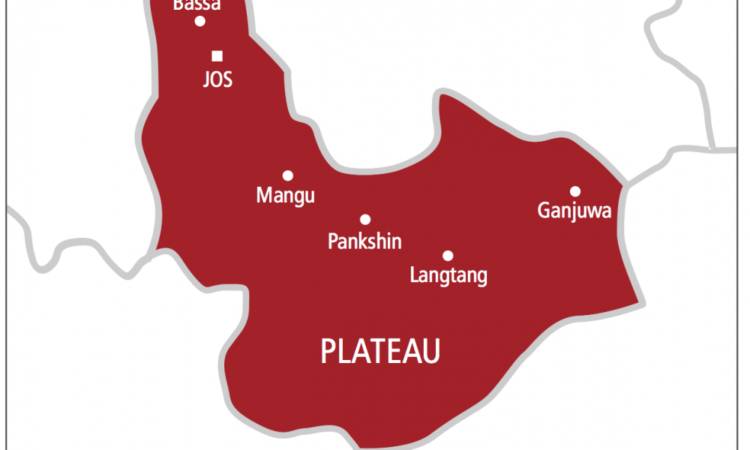Recent decision by the federal government to reintroduce History as a compulsory subject in primary and junior secondary schools is a good move to correct historical imbalance in the learning processes of Nigerian children. Ostensibly bowing to consistent public pressure, the Federal Government at last reintroduced History as a compulsory subject in the basic education curriculum in Nigeria. History was removed from Nigeria’s school curriculum in two phases. It was initially removed in 2007 as part of a new policy known as the New Basic Education Curriculum. However, History was officially eliminated from the basic education curriculum in 2009 by the Federal Government through the Nigerian Educational Research and Development Council (NERDC) during the 2009/2010 academic session. The justification was that students were avoiding the subject due to limited job opportunities for History graduates and a shortage of qualified History teachers.
The decision meant that History was no longer taught as a stand-alone subject at the primary and junior secondary school levels. Instead, it was merged into Social Studies, a move widely criticized by scholars and stakeholders as a grave mistake because it denied younger Nigerians the opportunity to properly learn about their nation’s past.
Following sustained public outcry and pressure from historians, educators, and cultural advocates, the Federal Government has now reintroduced History into the revised national curriculum set to take effect from the 2025/26 academic year. Under the new framework, History has been made a compulsory subject for pupils from Primary 1 through Junior Secondary School 3 (JSS3). They will be taught about Nigeria’s origins, heroes and heroines, cultural heritage, political development, geography, economy, religions, colonial rule, and post-independence governance. The objective is to instil and strengthen in them a sense of national identity, unity, patriotism, and citizenship. Students in Senior Secondary School (SSS1–3) will now take Civic and Heritage Studies, a newly developed subject that combines Nigerian History with Civic Education.
The Federal Government’s decision to reintroduce History into the school curriculum is commendable. Government should however seek the support of parents, educators, and relevant education stakeholders to provide resources, retrain teachers, and monitor implementation of the initiative to ensure that the reintroduction is beneficial to students.
A person without history, it is said, is a misshapen person. Without knowledge of the past, it will be difficult to advance toward the future. Sadly, many young Nigerian students in secondary schools are more conversant with American and European history than with Nigerian history.
Therefore, the reintroduction of Nigerian History into the curriculum will help young Nigerians understand the nation’s origins, the struggle for independence, the era of military rule, the Nigerian Civil War, the country’s political evolution, and its achievements, thereby fostering a sense of belonging and patriotism.
It is unbelievable that many school pupils in Nigeria are unaware of the contributions of the nation’s founding fathers such as Herbert Macaulay, Nnamdi Azikiwe, Anthony Enahoro, Tafawa Balewa, Obafemi Awolowo, H.O. Davies, K.O. Mbadiwe, Ahmadu Bello, Mbonu Ojike and others; and the roles they played in Nigeria’s political history. Knowledge of indigenous history provides moral examples from past leaders, freedom fighters, and reformers. It teaches civic responsibility, respect for laws, and the consequences of poor governance.
Moreover, it promotes national integration by exposing students to the diverse cultures, traditions, and heroes of Nigeria. It helps young Nigerians appreciate indigenous systems, traditions, and cultural values, thereby preventing the erosion of cultural identity in the face of globalization. It is a scandal that many young Nigerian students in urban areas cannot speak their own indigenous languages.
Nigeria’s history also situates the country within a wider African and global context, helping students see connections between world events and local realities. Most importantly, History prevents the repetition of past mistakes such as ethnic conflicts, corruption, and bad leadership. It shows how challenges were overcome, thereby inspiring resilience and problem-solving attitude.
However, as an institution responsible for research, curriculum development, and educational policy in the country, the NERDC has faced enormous challenges over the years. One of these challenges is how to safeguard the cultural, moral, and philosophical convictions of the Nigerian people in curriculum development. In particular, there are aspects of the 9-year Basic Education Curriculum on Religion and National Values produced by the NERDC, which are seen to be controversial and require some polishing in order not just to present Nigeria’s two main religions – Christianity and Islam – in their proper perspectives, but also to avoid possible conflict of adherents of the religions.
Also, the National Sexuality Education Curriculum produced by NERDC is currently attracting public outrage for its being allegedly modelled after the 1991 Guidelines for Comprehensive Sexuality Education (CSE) from New York. Many people see the guidelines as too permissive, expressive and therefore unsuitable for school children meant to be covered by the curriculum. These perceptions need to be visited and worked on for improved and better result on the character of the Nigerian child.
As former Education Minister, Adamu Adamu once explained, in Nigeria’s religious and cultural setting, the morals and values imparted in children by parents and religious institutions form the superstructure for moulding character and building national ethos.
Therefore, as history is being brought back to basic schools, the authorities must be mindful always of the need to preserve the character of school children who constitute the real treasure of Nigeria and are the future leaders of society. By investing in their proper education, skills, and overall development, we equip them to take on leadership roles and contribute positively to their communities and the world at large.
Children are the building blocks of human capital. Investing in their quality education and social well-being enhances their potential to become productive members of society. By providing them with a sound curriculum that encourages critical thinking, problem-solving, knowledge of historical facts, and creativity, we nurture their potential to become future inventors, scientists, artists, and entrepreneurs.
Therefore, the NERDC should envision a quality school curriculum capable of giving the children the opportunity to develop physically, mentally, morally, spiritually, and socially in a healthy environment and in conditions of freedom and dignity. That is the way to nurture the future leaders of tomorrow. The future is built on the triumph of youthful potential. If those potentials are ruined, the country’s future is invariably threatened.






